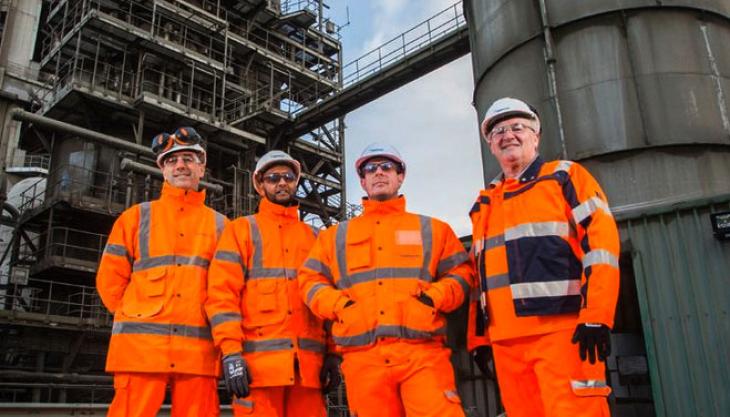Major investment at Ribblesdale cement works

Hanson to invest £25 million in seven-year project to improve production efficiency and emissions
HANSON are implementing a £25 million, seven-year project at Ribblesdale cement works, in Clitheroe, Lancashire, to improve production efficiency and emissions.
In the first six months £11 million is being spent on improvements and maintenance to enable the plant to meet new dust-emission regulations. This is the biggest investment programme since the 1990s and includes £2 million for replacement of the filters on two cement-grinding plants.
According to plant manager Terry Reynolds, Ribblesdale will run well below the new maximum dust-emission levels after the installation: ‘The permitted dust level is being reduced by 66% in April, from 30 milligrams per square metre to 10 – but the new equipment will perform better than this.’
‘Although we have to make the change to continue operating, we always strive to minimize our environmental impact in how we run and maintain the plant,’ said Mr Reynolds.
At £6.5 million, the replacement of the wet gas scrubber – the house-sized unit that removes sulphur and odour from kiln gases – is the largest investment. The site was the first UK cement plant to use ‘gas scrubbing’ technology in 1998.
According to environment manager Nick Sharpe, replacement of the scrubber will be one of the biggest changes to the plant since then: ‘It removes the just-struck-match smell that can result in complaints from our neighbours, and the sulphur that comes from the alternative raw materials we use.’
While the three-month scrubber installation starts in March, the ducting that is being replaced around the plant was completed during the shutdown in January. In total, some 75m of ducting were fitted during the £470,000 project as part of a five-year improvement plan for the site’s exhaust gas handling system.
‘The ducts dated back to the 1980s so needed to be replaced,’ said Mr Sharpe. ‘They range in in size from 3m to 5m in diameter, and the new lengths prevent fugitive emissions leaks and improve overall efficiency since cold air is not sucked into the process, so there’s a double benefit.’
Ribblesdale employs 116 people and is supplied by two on-site quarries worked by an 11-man team, with a team of contractors managing the loading and hauling of quarry materials.
The cement plant contributes £9 million into the local economy annually and has produced cement for projects including Manchester International Airport, Heysham nuclear power station, Manchester United’s football stadium, Liverpool’s Roman Catholic cathedral, and also now for Hinkley Point C nuclear power station.









